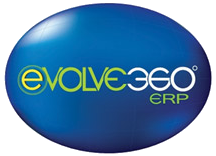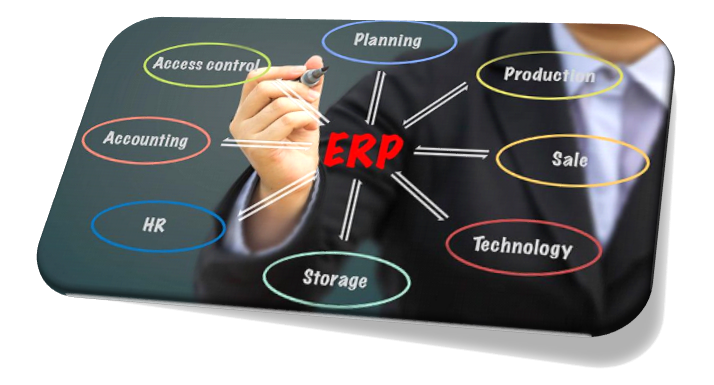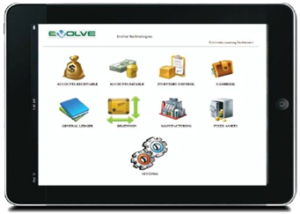EVOLVE ERP 360
Deployable either on the cloud or on premise.EVOLVE ERP 360
Evolve ERP Software offers a combined supply chain, manufacturing, distribution, and financial management system. All modules integrate with each other, allowing users to gain full access to all information and avoid re-entering data again and again. This ERP is applicable to small to mid-sized companies and works well for wholesale and retail distributors, manufacturers and service providers. Evolve ERP 360 is deployable either on the cloud or on premise.


EVOLVE ERP FOR JAPANESE COMPANIES
Evolve ERP 360 has been developed entirely by Evolve and now localized to suit Japanese market. It is equipped with translated screens and interfaces including menu bars and toolbars, as well as local functions, reports and documents to support Japanese business practices. Evolve's subsidiary company in Japan is fully equipped to customize ERP according to customer requirements.
FEATURES OF 360 ERP PRODUCT
- Sales and Account
- Receivables
- Purchase and Account Payable
- Inventory and Stock
- Cash and Bank
- General Ledger
- Reports
- Access Levels and adaptations
- Multi-Currency Support
- Advanced GST/VAT handling

Advantages & Disadvantages of Evolve ERP 360
Complete visibility into all the important process, across various departments of an organization (especially for senior management personnel)
Evolve ERP is a modular based software system and possible to implement either a few modules (or) many modules based on the requirements of an organization.
Excellent transaction drill down. Powerful audit trail report capability. Extensive online training and help functionality, Extensive report options
Automatic and coherent workflow from one department/function to another, to ensure a smooth transition and quicker completion of process. All the inter-departmental activities are properly tracked and none of them are 'missed out'
A unified and single reporting system to analyze the statistics/status etc. in real-time, across all functions/ departments.
Evolve ERP provides Business Intelligence functionalities that can give overall insights on business process and identify potential area of problems/ improvements
Advanced e-commerce integration is possible with Evolve ERP- most of them can handle web based order tracking/Processing
Software package is more secure as centralize security policies can be applied to them. All the transactions happening via the ERP systems can be tracked.
It is possible to integrate other systems (eg: like bar code reader) to the ERP system through an API (application Programming Interface).
Evolve ERP system make it easier for order tracking, inventory tracking, revenue tracking, sales forecasting and related activities.
Evolve ERP is cost effective and payback period is very short. Prices vary according to the requirements and modules
No Human resource management or customer relationship management modules. These have to be integrated separately.
Task shortcuts are not available and needs to configure from scratch.
FAQ
Most frequent questions and answers
IT teams understand technicalities, but may not understand how to gauge and resolve contingencies in business processes. This is where business leaders from all departments will need to be held accountable for participating in the adoption of the ERP system.
The point of the system is to create transparency for other business users and is likely a more effective solution for reports configuration. Without communicating specified work from each department, the ERP will not be configured to parallel these transactions and the system will not perform as expected.
Migrating data and converting it takes time; and time is money. The more data that needs to be migrated or converted, the longer the implementation will take.
Users must be adequately educated on their system and the processes in which they'll perform each day. Their education starts at the projects inception. This ensures the most ROI out of the system too, since users are using the system as intended.
Secondly, those designated a role in the project need to be held accountable for completing the tasks they've been issued on time. Without managing this, the implementation will inevitably take longer than expected. Users will need to stick to a homework plan throughout the implementation and executive sponsors will be accountable for making sure users are reviewing the material.
Thirdly, the customer must accept the customizations that will need to be done to the system. If there are integrations of the ERP to other system that need configured, this will require custom mapping of the system as well. The time frame for the ERP project could be longer than expected - but it's more likely worth the money and ROI that comes from those systematic configurations after the system goes live

Founded in April 2017 by Lal Pintoe, Nishantha Pintoe and Ashan Pintoe in Nigata, Japan as a subsidiary company of Evolve Technologies (Pvt) Limited. of Sri Lanka.